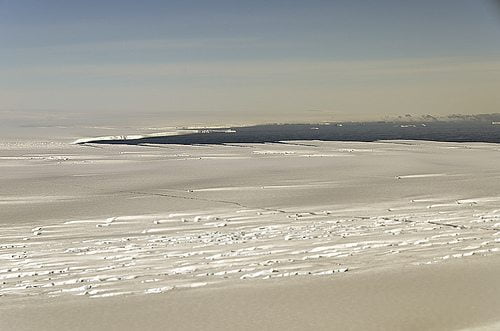

Environment
Antarctic Pine Island glacier will continue retreating, scientists say
The largest glacier in Antarctica, which split up into a giant iceberg in July, is likely to continue its retreat, according to experts who say it is the largest single contributor to sea level rise in the region.
The Pine Island glacier generated an ice sheet of 720 sq km, after a crack was first spotted in 2011. Cracks occur naturally but in this case, warm ocean water brought by winds is thought to have played an important role.
Now scientists have said in an article in Nature Climate Change that even if temperatures get much colder, the retreat is likely to continue, as it sensitive to a marine ice sheet instability mechanism. They say that the grounding line, which separates the grounded ice from the floating ice shelf, has retreated by tens of kilometres.
Dr Hilmar Gudmundsson from the British Antarctic Survey said, “At the Pine Island glacier we have seen that not only is more ice flowing from the glacier into the ocean, but it’s also flowing faster across the grounding line… We also can see this boundary is migrating further inland.”
According to experts, the phenomenon will play a key role in future sea level rise.
“Pine Island glacier shows the biggest changes in this area at the moment, but if it is unstable it may have implications for the entire West Antarctic Ice Sheet”, Gudmundsson said.
“Currently we see around 3mm of sea level rise a year, and the Pine Island Glacier retreat could contribute an additional 3.5-10mm in the next 20 years, so it would lead to a considerable increase from this area alone. But the potential is much larger.”
Further reading:
Antarctic ice sheet splits up into giant iceberg
Scientists to retrace explorer’s Antarctic route to track changes in region
Antarctic region melting twice as fast as first feared


 Environment12 months ago
Environment12 months agoAre Polymer Banknotes: an Eco-Friendly Trend or a Groundswell?

 Features11 months ago
Features11 months agoEco-Friendly Cryptocurrencies: Sustainable Investment Choices

 Features12 months ago
Features12 months agoEco-Friendly Crypto Traders Must Find the Right Exchange

 Energy11 months ago
Energy11 months agoThe Growing Role of Solar Panels in Ireland’s Energy Future


























